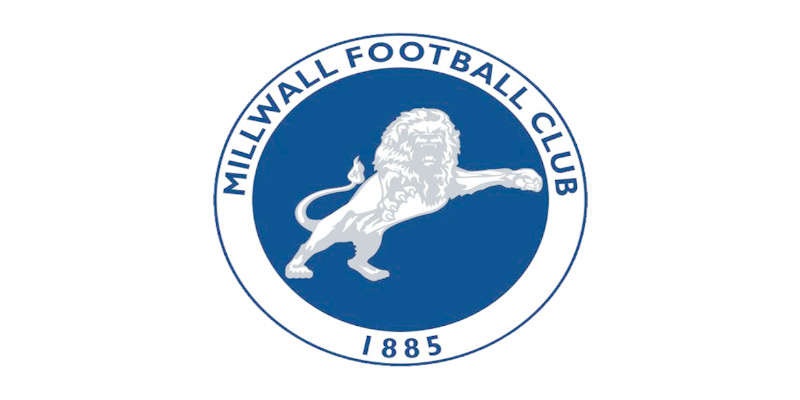
Millwall FC: The Untold Story Behind Their Fierce Rivalries
Millwall FC has long been a prominent figure in English football, celebrated for its fierce playing style and rich, complex history both on and off the pitch. Known for its passionate fanbase and intense rivalries, the club has carved out a distinct identity in the football world. Whether you’re exploring their past achievements or following their latest matchups, Millwall’s journey is one of enduring spirit. For those looking to place bets on Millwall’s matches, đăng nhập 789win offers a platform to engage with the action.
Introduction to Millwall FC
Millwall FC originated in 1885 as a team created by workers from the J.T. Morton’s factory in Millwall, East London. Since then, it has grown from its humble beginnings to become one of the most recognizable names in English football. Known for its fierce supporters, the “Lions” have cultivated a reputation that extends far beyond their home ground at The Den.
The steadfast loyalty of the fan base is palpable, drawing people together from diverse backgrounds united in their passion for the club. To understand the spirit of Millwall FC, one must first explore its rich history, key achievements, and recent developments that continue to shape its identity.
History and development of the club
The early years of Millwall FC were marked by a series of transformations that reflected the socio-economic changes of the time. Established during a period when football was beginning to take hold in England, Millwall quickly adapted to the growing popularity of the sport.
Initially playing friendlies and regional competitions, the club entered the Southern League in 1901, marking a significant step in its competitive journey. The transition to a league structure allowed Millwall to face off against other clubs, fostering local rivalries and enhancing their visibility in the football world.
As we delve deeper into the club’s history, the emergence of the Football League in the late 19th century provided Millwall with an opportunity to prove itself on a larger stage. The club joined the Second Division in 1920 and spent much of the following decades fluctuating between divisions, demonstrating resilience through both successes and challenges.
The name “Millwall” itself is steeped in tradition, representing the working-class ethos of the area. From humble beginnings, Millwall FC became synonymous with hard work, tenacity, and a fighting spirit that mirrored the local community’s struggles. This connection between the club and its locality laid the groundwork for a profound cultural identity that would later manifest in fierce rivalries with other clubs.
Key achievements in the club’s history
Throughout its storied past, Millwall FC has celebrated numerous notable achievements that have cemented its status within English football lore. One of the standout moments came in 1975 when they reached the FA Cup Final, only to be narrowly defeated by Sunderland. Though the loss was heartbreaking, the journey to the final showcased the team’s determination and garnered respect throughout the football community.
The club’s ascent to the top flight in the 1980s further solidified its recognition, culminating in an impressive run that saw them competing against some of the best teams in England. Millwall’s fans became famous for their unwavering support, creating a vibrant atmosphere wherever they played.
In the late 90s, Millwall reached another FA Cup Final, this time against Manchester United, immortalizing the club’s name in the annals of football history. While they ultimately finished as runners-up once again, the achievement reinforced the idea that Millwall was a force to be reckoned with in English football.
Beyond cup competitions, Millwall has seen success in league campaigns too, securing promotion to the Championship multiple times. The journey through various divisions has not only shaped the club’s identity but has also woven a narrative of perseverance that resonates deeply with its supporters.
Progress and improvements in recent years
In recent years, Millwall FC has focused on cultivating a more stable foundation, emphasizing youth development and strategic player acquisitions. The board recognized the importance of building a squad capable of challenging for promotion while maintaining financial health.
The appointment of Steven Morison as head coach brought renewed optimism. His background as a former player at Millwall provides him with unique insights into the club’s culture and values. Under his leadership, there has been a noticeable shift towards integrating young talent from the academy, ensuring that the Lions can sustain their competitive edge in the Championship.
Moreover, investments in infrastructure, including renovations to The Den, have enhanced the matchday experience for fans. The club understands that a strong connection with its supporters is vital for long-term success; therefore, improving facilities has been a priority. In turn, this strengthens the sense of belonging among fans and fosters a loyal community.
The club’s performance on the pitch has also shown signs of improvement, with notable victories against traditional rivals and consistent finishes in the mid-table. Fans remain optimistic about potential promotions to the Premier League as the club continues to build momentum.
Conclusion
Millwall FC stands as a powerful symbol of resilience, community, and unwavering passion in the world of football. From its humble beginnings to the fierce rivalries that punctuate its history, the club embodies the spirit of the working-class roots from which it emerged.

